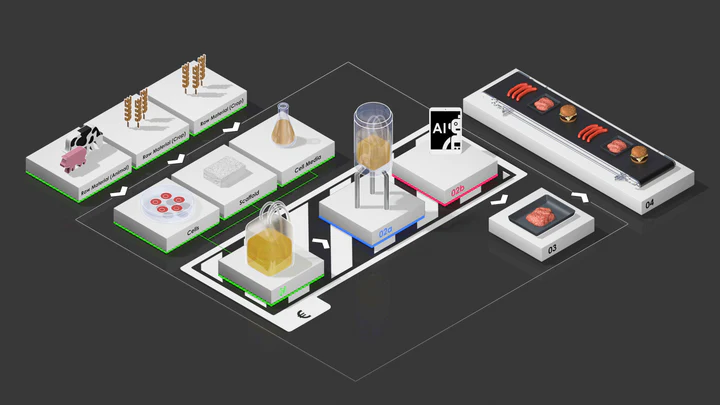

Schouten Europe introduces meat substitutes based on mycoprotein
Schouten Europe, a producer of plant-based protein products, has announced the addition of mycoprotein products to its range. The Dutch company has taken this step in line with its vision to develop tasty, minimally processed, and nutritionally complete products based on plant-based proteins with a low footprint.
Mycoprotein is a protein-rich food ingredient produced from fungal organisms, such as certain types of fungi from the genus Fusarium. These fungi are cultivated in a controlled environment where they feed on a sustainable carbon source, such as glucose. During the growth process, the fungi multiply and form a dense, fibrous structure resembling the texture of meat. This mycoprotein can be harvested, processed, and used as an ingredient in meat substitutes.
Mycoprotein has several characteristics that make it attractive for food production. It is a complete protein source, meaning it contains all the essential amino acids required by the human body. Additionally, mycoprotein is naturally low in fat and cholesterol, making it a healthy option for individuals looking to reduce their fat and cholesterol intake.
The first products developed by Schouten with mycoprotein are a nugget and cubes. Both products are substitutes for original chicken products. For years, producer Quorn had exclusive rights to the application of mycoprotein. The raw material recently became available to other parties in the market.
“For us, it's an opportunity to take steps in implementing our vision, which states that we want to market increasingly less processed products with a low footprint,” said Peter Schouten, CEO of the family business. "Mycoprotein requires less land and water to produce compared to, for example, soy. Furthermore, it produces fewer greenhouse gases per unit of protein produced than soy and up to 30 times less than beef.
“We are facing a crucial period. By 2050, the world population is expected to reach 9.7 billion people. The demand for proteins is growing significantly. At the same time, we must reduce the environmental impact of traditional protein production. This can only be achieved by collectively consuming much more plant-based protein. We have felt this responsibility for decades and are innovating in various areas to take the meat substitute category to the next growth phase.”
If you have any questions or would like to get in touch with us, please email info@futureofproteinproduction.com

.png)






